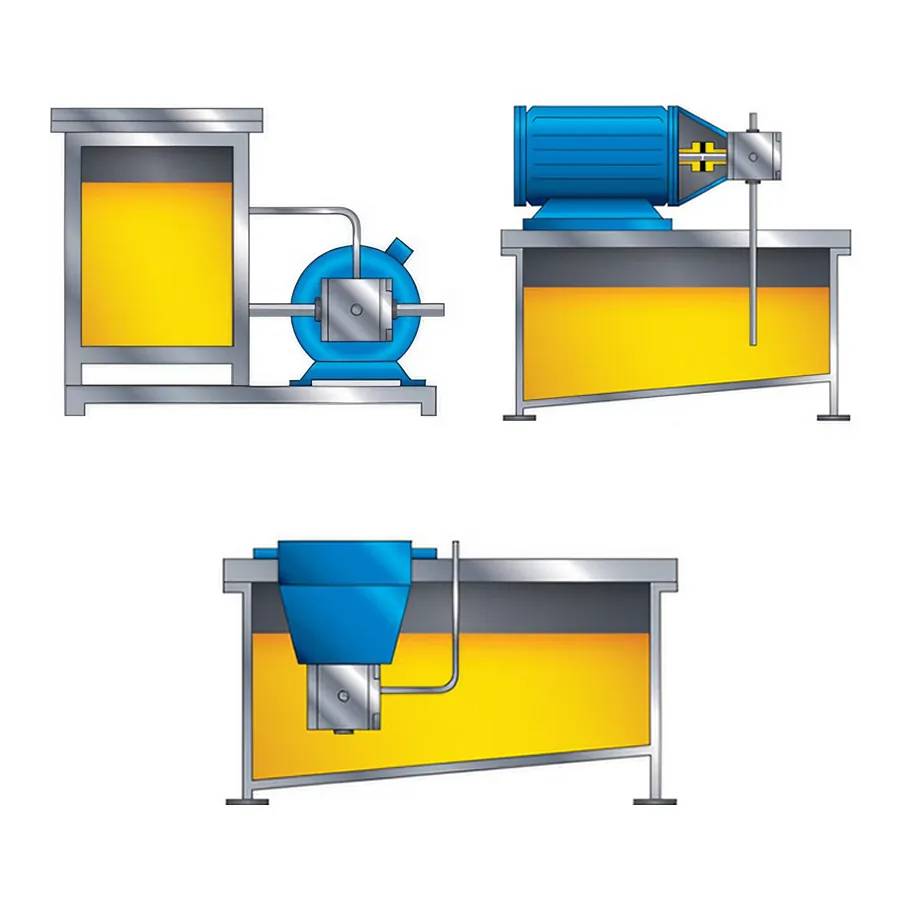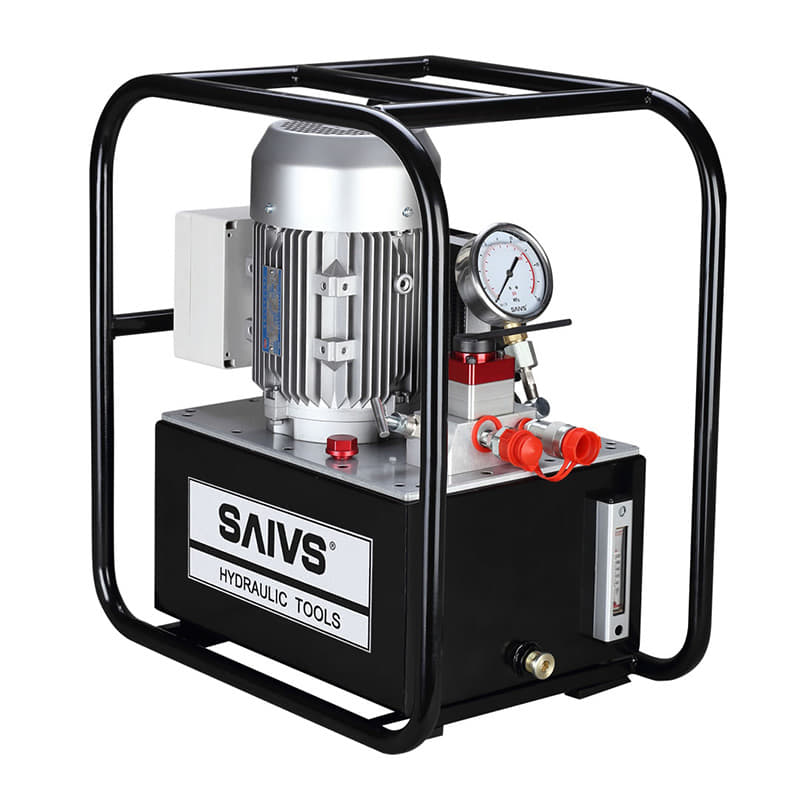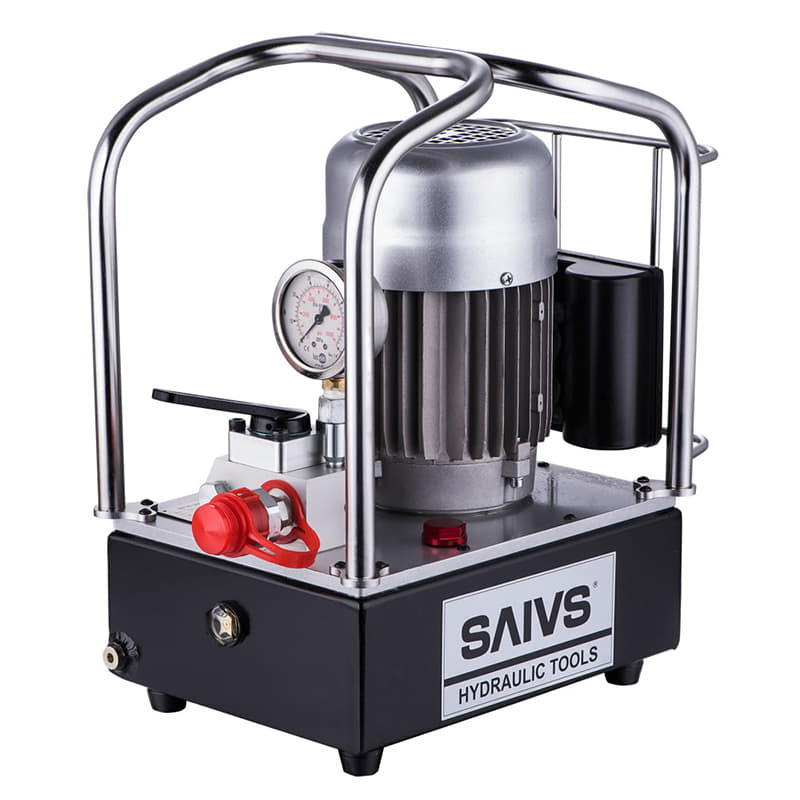Flooded is Best: How Proper Installation Extends Hydraulic Pump Life
hydraulic pumps play a vital role in the efficiency and functionality of Hydraulic Systems.
To ensure optimal performance and extend the service life of these essential components,
it's crucial for users to be aware of potential issues and adopt best practices.
This article aims to provide valuable insights into identifying signs of hydraulic pump failure and offers practical tips to enhance usability.
The Key to Extending the Service Life of hydraulic pumps
How to tell if a hydraulic pump(electric hydraulic pump high pressure)needs to be replaced?
Pay attention to the following to identify signs that a hydraulic pump is about to fail:
Performance Decline:
Reduced efficiency of the hydraulic system and actuators struggling to maintain force
or speed may indicate that the hydraulic pump is nearing the end of its service life.
Unusual Noises:
Pay attention to any abnormal sounds coming from the hydraulic pump, such as knocking, grinding, or excessive whining.
These noises may signal internal problems like worn-out bearings or damaged gears, which can lead to a decline in pump efficiency.
Leakage:
Hydraulic pumps should not leak fluid externally.
If you notice puddles forming beneath the pump or fluid dripping from it, please address it immediately.
Leaks are often caused by compromised seals, gaskets, or other internal components.
Temperature Fluctuations:
Overheating in your hydraulic system can be a symptom of pump troubles.
Excessive heat can cause further damage throughout the system.
Regularly monitor the temperature and investigate the pump if overheating issues persist.
Increased energy consumption:
A sudden spike in energy usage, even after adjustments,
may suggest that your pump is struggling to maintain hydraulic pressure efficiently.
If a pressure-compensated pump is stroking further to maintain flow,
it can result in higher energy consumption and increased heat.
Age and Usage History:
Consider the age and usage history of your hydraulic pump.
Older pumps or those subjected to heavy use may be more prone to failure.
Keep track of installation dates to estimate the predicted pump life and consider preventive replacement or servicing.
Manufacturer's Recommendations:
Adhere to the manufacturer's guidelines for hydraulic pump maintenance and replacement intervals.
Manufacturers often provide valuable information on expected pump lifespans and maintenance requirements.
How To Mount: extend the service life of hydraulic pumps
Maintain sufficient oil level in the tank:
A common practice is to mount the hydraulic pump above the minimum oil level, forcing the pump to lift the oil into its intake.
While some manufacturers approve of this mounting method, it may not optimize pump life,
especially for piston and vane pumps that struggle with vacuum-induced forces.
Adopt a flooded inlet:
Ideally, the pump's inlet conditions should be 100% boost, meaning the pump inlet should be supercharged under all operating conditions.
While supercharging may not be practical in most applications,
there is virtually no excuse for not having a flooded inlet, where the pump's intake is below the minimum oil level.
Facilitate maintenance:
In addition to making the pump lift its oil,
mounting the pump above the tank or inside the tank (especially inside the tank) also makes maintenance challenging.
When choosing this type of structure, in addition to considering the cost-effectiveness,
you should also pay attention to its long-term impact on pump performance and maintenance convenience.

How to achieve longer pump life?
Equipment selection: For users who are concerned about these issues, it is crucial to specify a "flooded" installation when purchasing Hydraulic Equipment.
Design considerations: Hydraulic power unit designers and manufacturers can improve machine reliability by ensuring that all units feature a flooded inlet.
By following these best practices, you can extend the life of your hydraulic pump and improve the overall efficiency of your hydraulic system.
By following these best practices, you can extend the life of your hydraulic pump and improve the overall efficiency of your hydraulic system.
For applications demanding exceptional efficiency and extended service life, electric hydraulic pumps offer distinct advantages.
These pumps boast cleaner operation, quieter performance , and improved energy efficiency compared to traditional engine-powered pumps.
As a result, Electric Hydraulic Pumps are finding widespread use in a variety of industries, including new energy vehicles, industrial robots, medical equipment, construction machinery,
and agricultural machinery, showcasing their versatility and efficiency in electric hydraulic pump applications.
Why Choose SAIVS™ as Your Supplier?
With 20 years of industry experience, SAIVS is a leading Chinese manufacturer of high-quality tools, offering competitive pricing and excellent customer service.We pride ourselves on exceptional quality control, extensive experience, and comprehensive after-sales service.

